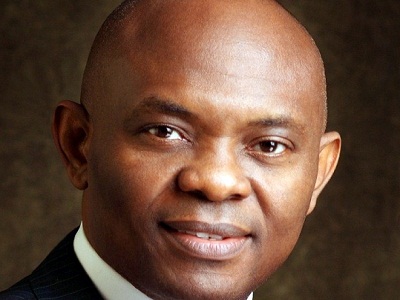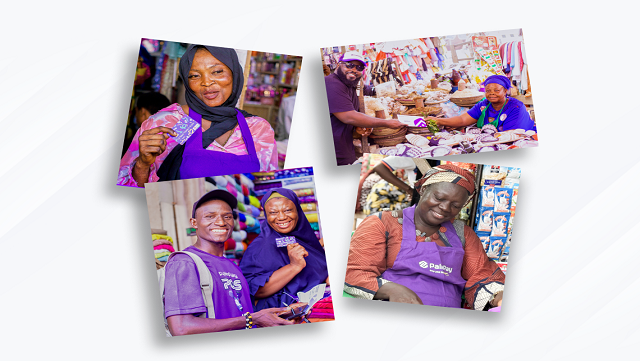General News
Operators and Expanding Demand for Mobile Broadband

The improvement in access to telephones has had positive impact in virtually all facets of life, including political, social and economic activities, thus resulting in an exponential growth in the subscriber lines due to the widespread of networks across the country.
Currently, the growth and potential earnings accruable from telecommunication services in the country’s economy is comparable to other markets in the world, and the current rate of network growth across the country is impressive.
Quite a number of global technology corporations are extending their operations to Nigeria with a multiplier effect on the economy and international trade between Nigeria and other countries of the world and in particular the West African sub region. The result of this is more competitive market environment and high potential for wired line network service providers.
Moreover, a new report by Infonetics says that it expects operators to see a 6% increase overall in revenue from mobile voice, mobile broadband, and mobile messaging services in 2012. The highest growth in 2012 will come from Asia Pacific and Latin America, while the EMEA region is expected to see a slight decline due to cutthroat competition and economic turmoil.
Globally, the mobile services market is forecast to grow to $976 billion by 2016, with the bulk of the growth coming from mobile broadband services.
“The mobile world is undeniably shifting from voice to data, as mobile operators migrate as many subscribers as they can to data service plans and smartphones.
Already in North America and Asia Pacific, mobile operators derive over 40% of their mobile revenue from mobile broadband and messaging. But, while mobile broadband is no doubt the fastest growing revenue stream for operators, mobile messaging and voice aren’t dead just yet, not by a long shot,” notes Stéphane Téral, Infonetics Research’s principal analyst for mobile infrastructure and carrier economics.
Téral adds: “The prophecies of doom for mobile operators’ SMS/MMS cash cow are being overplayed. Despite the popularity of over-the-top messaging applications like Apple’s iMessage and WhatsApp, our data shows SMS growing every year from 2012 to 2016, delivering a cumulative $1 trillion in operator revenue during those 5 years. And over that same period, voice revenue will decline only slightly, still making up a sizable chunk of operator revenues.”
Mobile data (text messaging, multimedia messaging, and mobile broadband) service revenue rose in every region in 2011, driven by an increase in smartphone usage. At more than a quarter trillion dollars in 2011, Asia Pacific generates the largest portion of mobile service revenue
Voice revenue dipped 0.8% worldwide in 2011, despite the growing use of voice services in China.
Mobile broadband subscribers will grow from 15% to nearly 40% of all mobile subscribers between 2011 and 2016.
According to another report released by ABI Research last week, the global volume of mobile data traffic will exceed 107 exabytes in 2017. This total traffic volume will be eight times more than what is expected for 2012.
Aapo Markkanen, ABI Research senior analyst points out that although the numbers may sound seemingly big, they shouldn’t be understood as yet another warning of the untamable data tsunami mobile operators often try to portray for regulatory reasons. Markkanen says, “It looks like 2015 will be the last year when the traffic volume will grow by more than 50% annually.
And that will happen despite of the fact that the monthly average per wireless subscriber, worldwide, will increase to almost 1.5 gigabytes by the end of our forecasting period.”
A lot of the overall data consumption will depend on how much of on-demand video content will in the end be delivered over cellular networks, so changes implemented by individual content providers may have far-reaching effects.
Netflix, for example, recently added to its iOS app a simple function by which users can limit their viewing to Wi-Fi only and thereby avoid overage charges. Besides accidental video streams, app downloads and updates are another activity that can be easily steered onto fixed networks.
Where are we
The number of mobile subscribers connected to mobile broadband internet has reach about 800,000 as at September last year.
Mobile Broadband is used to describe various types of wireless high-speed internet access through a portable modem, telephone or other device. Various network standards may be used, such as GPRS, 3G, WiMAX, LTE, UMTS/HSPA, EV-DO among others.
According to a recent research by Global System for Mobile Association (GSMA) made available to Nigeria CommunicationsWeek through Mr. Ross Bateson, the association’s spokesperson, the figure represents 80 percent of total Broadband subscribers in the country which is put at 1million.
He said that mobile broadband is a key social and economic development lever, driving Internet connectivity and bridging the existing digital divide.
“The rapid rise in mobile data usage in Nigeria will yield major social and economic benefits as long as there is sufficient spectrum available to meet demand. These include connectivity for businesses and consumers not reached by fixed-line broadband networks and provision of new services, particularly in rural areas,” he noted.
Wireless Intelligence report says that mobile broadband has built good momentum across Africa, with over 7 million high speed packet access (HSPA) connections and an additional 440,000 being added every month.
There are currently 29 HSPA networks across the continent with a further five being planned, and there are four planned LTE networks. Mobile Broadband has proved most successful in Africa where transparent, non-intrusive regulation has been put in place to allow competition between operators.
Bateson urged the federal government and regulators to make plans for the auctioning of 2.5GHz spectrum to support the deployment of LTE technology.
“The Nigerian Government must also start to contemplate the release of low frequency Digital Dividend spectrum. This will be instrumental in ensuring rural areas of Nigeria benefit from high bandwidth broadband connectivity,” he added.
General News
IHS Nigeria, United Nations Global Compact Host High-Level Dialogue on Sustainability and Greener Business Practices in Nigeria

IHS Nigeria, in collaboration with the United Nations Global Compact Network Nigeria, hosted a high-level private sector dialogue themed “Collaborative Strategies for Greener Business Practices, Innovation and Sustainable Development”.

The event, held in Lagos, brought together key players from different sectors including finance, law, telecommunications, biodiversity, and corporate sustainability to explore actionable pathways to achieve meaningful environmental stewardship in Nigeria.
The panel session offered bold perspectives on integrating sustainability into business frameworks across different sectors, whilst dispelling myths, and highlighting opportunities for organizations, and calling for collective action from all players within the business value chain.
Delivering a keynote address, Titilope Oguntuga, Director, Sustainability at IHS Nigeria, emphasized the urgency of environmental consciousness: “Sustainability is not a destination — it’s a collective journey.
“It requires courage to transform, vision to lead, and collaboration to scale. Nigeria stands at a crossroads. We can either be overwhelmed by the risks or rise to become a beacon of green innovation and inclusive growth in Africa. The choice is ours — and the time is now.”
Sylvie Josel, Lead, Biodiversity and Nature-Based Solutions at the United Nations Global Compact, joined virtually from New York and spotlighted nature as a strategic asset:
“Nature must no longer be treated as an afterthought. It underpins everything, from human rights to supply chains. Embedding biodiversity into a company’s core strategy isn’t just a risk mitigation measure; it’s a smart, future-forward business imperative”.
Lanre Babalola, Group Head, Climate Finance and Sustainability at the Bank of Industry (BOI), provided insights into how BOI is funding sustainable ventures and driving innovation: “We look beyond profitability; we look at environmental and social impact. Whether it’s plastic roads, biogas, or solar transitions, we support businesses that are not only bankable but capable of reshaping the future.”
From the legal perspective, Oyeronke Oyetunde, General Manager, Regulatory Affairs, MTN Group, drew attention to the regulatory challenges hindering sustainability adoption: “Our legal frameworks are trailing behind today’s sustainability realities. We need forward-thinking laws, reduced regulatory silos, and incentives that reward the right behavior. Sustainability can’t thrive where enforcement is weak, and taxation is excessive.”
Abimbola Agbejule, Head, Corporate Sustainability and Responsibility at Wema bank, spoke passionately about inclusiveness in sustainable development: “You don’t need to start big to make impact. MSMEs make up a huge part of our economy. Sustainability should be embedded in their day-to-day activities, and we must democratize access to knowledge, tools, and partnerships.”
The session was moderated by Gloria Okorie, Head of Programs at the United Nations Global Impact Center.
The event closed with a resounding call to action for stronger legal frameworks, deeper collaborations, and inclusive capacity building across sectors. The event further reinforces IHS Nigeria’s position as a leader in corporate sustainability and innovation in Nigeria.
“At IHS Nigeria, we recognize that true progress happens when sustainability is not an obligation, but a culture, lived every day, across every unit,” Titilope Oguntuga added.
Through initiatives like this dialogue, IHS Nigeria and its partners continue to champion solutions that protect the planet, empower people, and ensure long-term business viability.
General News
Bridging the Digital Divide: Over 700 Young Africans Empowered by Paradigm Initiative

Paradigm Initiative (PIN), a leading digital rights and inclusion nonprofit, has revealed in its 2024 Annual Impact Report that over 707 young individuals across 11 African countries have been empowered through its flagship LIFE Legacy Programme.

The initiative delivers training in life skills, ICT, financial literacy, and entrepreneurship—transforming underserved communities across the continent.
In 2024, the LIFE Legacy Programme ran 25 training cohorts across Cameroon, DRC, Ghana, Kenya, Senegal, South Sudan, Liberia, Uganda, Tanzania, Zambia, and Zimbabwe. In Senegal, 60 laptops were distributed to local partners, while digital literacy programmes were launched in schools in Cameroon and Tanzania through the LIFE@School initiative.
PIN advanced its advocacy by supporting 29 legal cases in Ghana, Kenya, and Nigeria. A notable success was the landmark judgment in Molehin v. UBA, where the bank was found guilty of violating data privacy laws.
PIN’s research and media efforts made powerful waves. The Londa digital rights report, covering 26 countries, was downloaded 8,457 times. Its fourth short film, Undersight, recorded nearly one million views on YouTube. PIN also developed an AI strategy report with TrustLaw and collaborated with the Centre for Democratic Technology to assess content moderation policies for Kiswahili across Kenya and Tanzania. A separate report highlighted the troubling deployment of surveillance technologies across Africa, which was referenced in direct advocacy engagements with a telecom operator.
The organisation’s advocacy also contributed to the adoption of the African Commission’s Resolution 580, which urges governments to avoid Internet shutdowns during elections—strengthening digital freedom across the continent.
Meanwhile, the Digital Rights and Inclusion Forum (DRIF) convened in Accra attracted 1,004 delegates from 61 countries, strengthening regional collaboration and amplifying the voice of civil society. PIN’s strategic communications pushed its media reach to 1.43 billion and social media engagement to 8.8 million.
Alongside training and policy efforts, the organisation inspired young changemakers through youth-focused campaigns and hosted seven fellows under the Digital Rights and Inclusion Learning Lab (DRILL) fellowship.
Crowning a year of impact, PIN earned the maiden PrivCon Privacy Award in Nigeria and was recognised in the Social Innovation Category at the Nigeria Innovation Awards for its work connecting African youth to digital opportunity.
General News
PalmPay’s Bold Move For Social Impact in Northern Nigeria

In the busy Fagge Market in Kano, Zahra Bello, a middle-aged entrepreneur who runs a fabric store, speaks about her experience with mobile banking and how this has simplified business transactions and improved her small business.

Behind the growth of these resilient women entrepreneurs lies a story of transformation powered by technology.
“My name is Zahra Bello, I’m from Dambatta in Kano State, and I’m a fabric trader. I first heard about PalmPay from my elder brother in March 2024. He told me how he used the PalmPay Target Savings feature to buy new machinery for his farm and even earned interest. That inspired me to try it too.”
Zahra downloaded the PalmPay app that very day. By December, she’d used the Target Savings plan to restock her shop with new fabrics, an achievement she never thought possible within such a short period. “I was so happy,” she smiles. “The interest I earned on my savings motivated me to save more. PalmPay has become my savings box. I use it for all my transactions now.”
Her story, like many others, is the inspiration for PalmPay’s evolving vision of inclusive banking in Nigeria’s underserved communities.
Women, SMEs, and Technology
Financial exclusion remains a critical challenge in Northern Nigeria. According to EFInA’s 2023 Access to Financial Services survey, an estimated 28.8 million adults in the North are excluded from the formal financial system, with exclusion rates as high as 47% in the Northwest.
Among women, especially those in rural areas, the figures are even more concerning, as these numbers represent the daily reality of millions of women who run informal businesses and contribute to household income without access to banking, credit, or digital tools.
PalmPay’s initiative addresses this gap directly. 5,000 female entrepreneurs in Kano and Kaduna will receive hands-on financial literacy training on mobile payments and their shops are rebranded with signages, aprons, and other kits that will enhance visibility for their businesses.
“I used to write down every sale in a notebook. Now I track everything with my PalmPay account,” says Rabi Abdullahi, a trader in Kano. “Customers trust me more now that I have a business name and branded store.”
PalmPay has done its due diligence to understand the challenges and has offered a tailored approach to solving these issues which includes this social impact initiative.
Social Impact and Strategic Growth
With over 35 million users in Nigeria, the company is keen to expand in regions where smartphone adoption is rising but digital finance penetration remains low.
Femi Hanson, Head of Marketing and Communications, explains: “We see this as long-term ecosystem building. When you give small business owners the tools to grow, you don’t just gain users, you build loyalty, trust, and sustainable impact.” This also aligns with Nigeria’s Financial Inclusion Strategy goal to reach 95% inclusion by 2025, a benchmark that can’t be reached without focused efforts in the North.
The project has earned the support of traditional leaders, most notably His Royal Highness, the Emir of Kano, Dr. Muhammadu Sanusi II, who praised the initiative and called for greater collaboration between the private sector and community stakeholders.
With the success of this initiative, PalmPay has continued to expand its solutions in these regions offering support to even more women.
In Northern Nigeria, where the need is great and the gap wide, PalmPay is proving that true impact goes beyond offering products to providing support and meeting the needs of its users at the grassroots.

 Telecom3 days ago
Telecom3 days agoALTON Clarifies on Migration to End-User Billing for USSD Services

 E-Financial3 days ago
E-Financial3 days agoNigerian Stock Market Suffers ₦183 Billion Loss Amid Profit-Taking

 News3 days ago
News3 days agoDStv Rewards Loyal Customers with Free Package Upgrades

 Telecom3 days ago
Telecom3 days agoLagos Future Conference 2025: Stakeholders Call for Digital Responsibility and Grassroots Innovation

 General News3 days ago
General News3 days agoAfrican Parliamentarians Seek Answers from Telcos on Quality of Service

 News2 days ago
News2 days agoLasaco Assurance to Invest in Technologies, Systems to Deliver Value to Clients

 E-Financial3 days ago
E-Financial3 days agoSEC Working on Stablecoin Regulation Framework

 News3 days ago
News3 days agoFCCPC Orders Air Peace to Appear Over Alleged Refund Violations
























